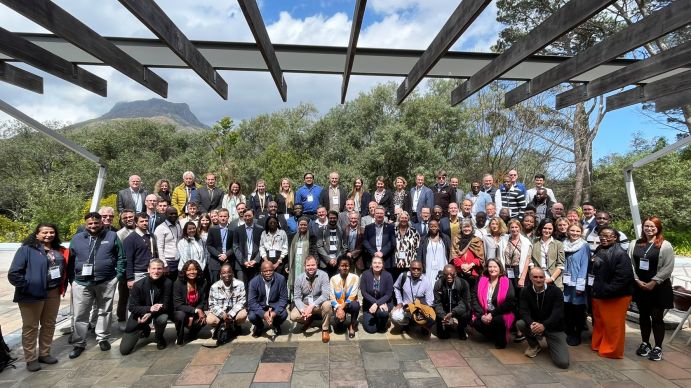International Cooperation for Greater Water Security in Southern Africa
The main phase of the "Water Security in Africa" (WASA) research programme is in full swing: more than 100 researchers, industry partners, policy-makers and stakeholders from Germany and southern Africa gathered for the official launch in Stellenbosch, South Africa, from 25 to 27 September. They presented the status quo and discussed the next steps towards greater water security in the region.
The effects of climate change, such as floods and droughts, are a global reality. We must "adapt or die", emphasised Lindiwe Lusenga, Deputy Director-General at the South African Department of Water and Sanitation, in her opening address. She and other speakers, including Dr Rainer Müssner from the German Federal Ministry of Education and Research (BMBF) and Dr Nico Elema from Stellenbosch University, stressed the importance of international cooperation for sustainable, climate-resilient water management. The WASA programme, complemented by existing African Union initiatives, could make important contributions.
Keynote speaker Professor Hamanth Kasan, President of the International Water Association (IWA), highlighted the need for decentralised water management systems, water conservation practices and re-use strategies to improve water security. More investment is also needed, added Joanna Fatch of the African Ministers' Council on Water (AMCOW). "We need to attract funding for water security and show that investing in water security is a business case". The main phase of the WASA programme will therefore focus on demonstration and transfer activities to develop innovative practices and services.
In total, more than 90 partner institutions from Germany and Africa are working together on water security in southern Africa in the main phase of WASA. Seven projects are conducting research in three thematic areas: "Sustainable Water Resources Management", "Water Infrastructure and Water Technology" and "Hydrological Forecasting and Management of Hydrological Extremes". They started in May 2024 and will run for four years.
The WASA programme was developed jointly by African and German experts from science and practice, including AMCOW and ministries from Angola, Botswana, Namibia, Zambia and South Africa. On the German side, the programme is overseen by the Federal Ministry of Education and Research (BMBF).
The proceedings of the kick-off conference provide an overview of the seven WASA research projects and the WASA programme. It is available for download.





